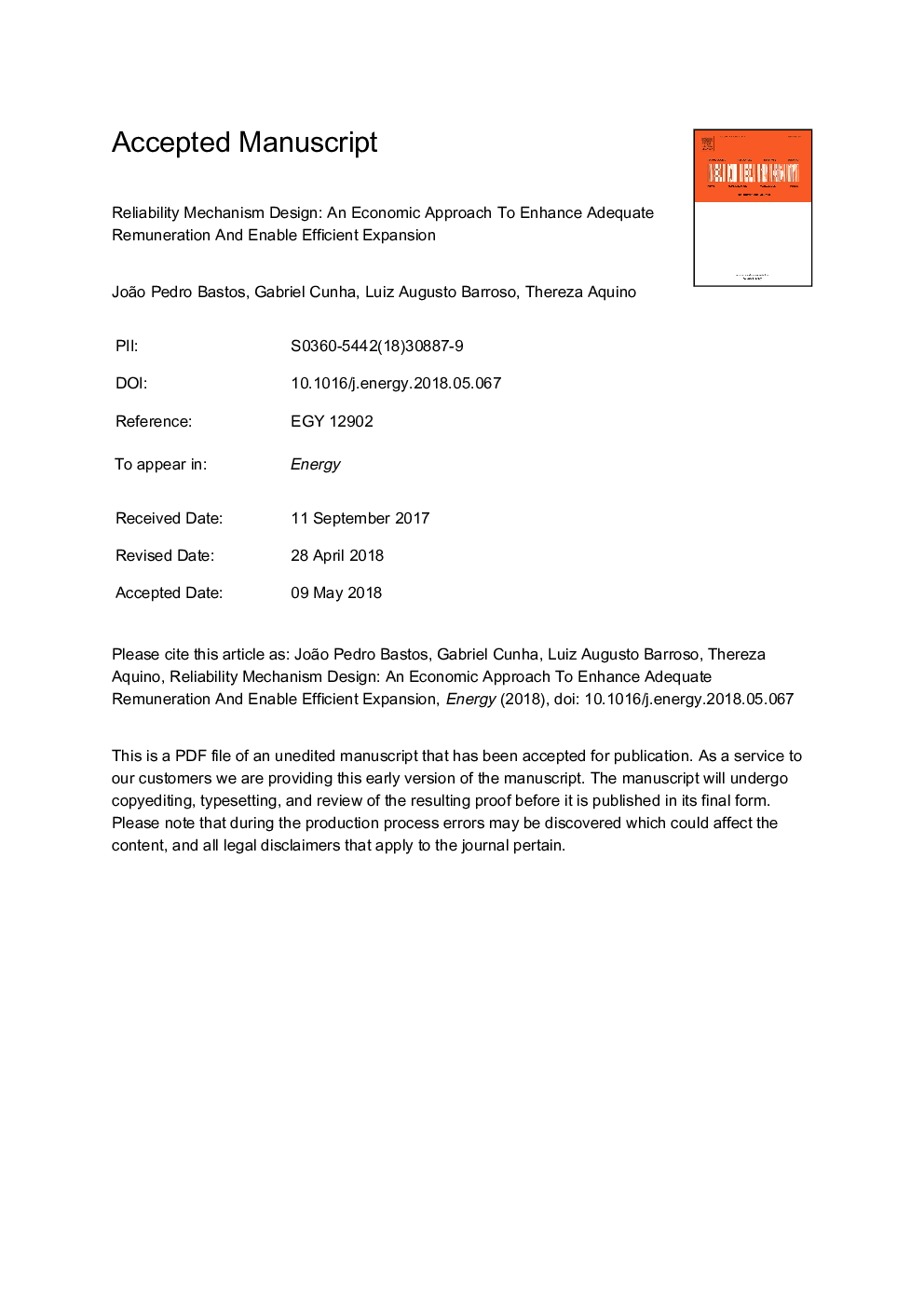| کد مقاله | کد نشریه | سال انتشار | مقاله انگلیسی | نسخه تمام متن |
|---|---|---|---|---|
| 8071241 | 1521392 | 2018 | 19 صفحه PDF | دانلود رایگان |
عنوان انگلیسی مقاله ISI
Reliability mechanism design: An economic approach to enhance adequate remuneration and enable efficient expansion
ترجمه فارسی عنوان
طراحی مکانیزم قابلیت اطمینان: یک رویکرد اقتصادی برای افزایش پاداش مناسب و گسترش کارآمد
دانلود مقاله + سفارش ترجمه
دانلود مقاله ISI انگلیسی
رایگان برای ایرانیان
کلمات کلیدی
بازار برق، گواهینامه انرژی شرکت، مکانیسم قابلیت اطمینان،
ترجمه چکیده
در فرآیندهای اصلاحات بخش ای که چندین کشور در سال های 1990 و 2000 انجام دادند، به طور معمول برای معرفی یک مکانیسم ظرفیت برای اطمینان از کفایت در گسترش سیستم ها، معمول بود. تعریفی که از یک محصول قابل اطمینان حاصل می شود این جدا از محصول انرژی است که نقش اصلی آن شناسایی سهم ژنراتورها در لحظات بحرانی کم احتمال است که برای جذب سرمایه گذاری در نسل جدید در بازارهای برق تازه آزاد شد. این مطالعه روش شناسی را ارائه می دهد که به طور همزمان نه تنها ارزش محصول قابلیت اطمینان را به عنوان درک از طرف تقاضا بلکه همچنین مقادیر این محصول (گواهی های انرژی سازمانی) تعیین می کند تا به هر ژنراتور در یک سیستم قدرت گرمازا اختصاص یابد. این روش با استفاده از یک مطالعه دقیق در مورد سیستم برق برزیلی با استفاده از نرم افزار بهینه سازی تخصصی به کار گرفته شد. ما مقدار گواهی های انرژی شرکتی و ارزش اقتصادی آنها را برای شش ژنراتور نماینده تکنولوژیکی - گیاهان ترموالکتریک با هزینه های متغیر متغیر (حداکثر و بار اولیه)، نیروگاه های آبی با و بدون مخازن فصلی، باد و خورشید محاسبه کردیم که نشان دهنده نقش ویژگی های هر تکنولوژی در تخصیص گواهی های انرژی شرکت در میان ژنراتورها.
موضوعات مرتبط
مهندسی و علوم پایه
مهندسی انرژی
انرژی (عمومی)
چکیده انگلیسی
In the sectoral reform processes that several countries underwent in the 1990s and 2000s, it was common to introduce a capacity mechanism to ensure adequacy in the systems' expansion. The definition of a “reliability product” that is separate from the energy product, whose main role is to identify the contribution of generators during critical moments of low probability, was instrumental to attract investments in new generation in the newly-liberalized electricity markets. This study presents a methodology to simultaneously determine not only the value of the reliability product as perceived by the demand side but also the quantities of this product (the firm energy certificates) to be allocated to each generator in a hydrothermal power system. The methodology was put into practice through a detailed case study of the Brazilian electric system using specialized optimization software. We calculated the amount of firm energy certificates and their economic value for six technologically representative generators - thermoelectric plants with different variable costs (peak and baseload), hydropower plants with and without seasonal reservoirs, wind and solar - evidencing the role played by the characteristics of each technology in the allocation of the firm energy certificates among generators.
ناشر
Database: Elsevier - ScienceDirect (ساینس دایرکت)
Journal: Energy - Volume 158, 1 September 2018, Pages 1150-1159
Journal: Energy - Volume 158, 1 September 2018, Pages 1150-1159
نویسندگان
João Pedro Bastos, Gabriel Cunha, Luiz Augusto Barroso, Thereza Aquino,
